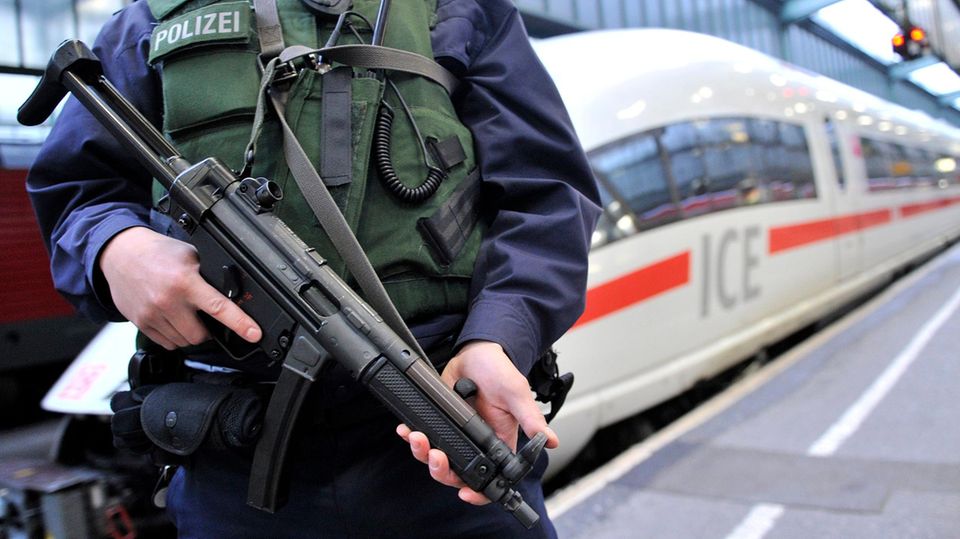After the attack near Moscow, terror expert Guido Steinberg also sees an increased threat situation in Germany. In the star he talks about the most dangerous IS offshoot – and the role of social media.
Mr. Steinberg, after the terrorist attack near Moscow, Interior Minister Nancy Faeser warns of the threat of terrorism Germany. Do you also see this danger?
In recent years we have seen a relatively large number of planned attacks in Germany. I also have the impression that after October 7th, after the Palestinian Hamas attack on Israel, the willingness to commit violent acts increased again. That’s why I share the Interior Minister’s warning.
Does that mean the risk of attacks in Germany has increased?
At least that’s the impression. There is also an important theoretical aspect: We see that some of the suspected attack planning in Germany can be traced back to the “Islamic State Privinz Khorasan” (ISPK)…
…who contributed to the terrorist attack Moscow claim for yourself…
… and he not only ramped up his propaganda against the West, but also his attacks. First the ISPK worked in Afghanistan, then in Pakistan and Iran, now in Russia. If you add the suspected attack planning in Germany, it becomes clear that the threat situation posed by the ISPK has worsened overall.
What do we know about the terrorist group “Islamic State Khorasan Province”?
The “Islamic State of Khorosan Province” is an offshoot of IS in Iraq and Syria and has become a kind of international vanguard of the terrorist organization. What I mean by that: The ISPK is the only IS offshoot that still plans and carries out external operations abroad today.
How did the offshoot come about?
The ISPK is an association of jihadists from Afghanistan, Pakistan and Central Asia. The group is united not only by hostility towards the West, Russia and China, but also towards the Taliban. The offshoot – like IS as a whole – pursues an uncompromising and brutal program against its enemies. Their most important enemy is the Taliban; some time ago they expanded their armed struggle to neighboring countries such as Pakistan and Iran and now even to Russia, which is further away.
“Germany has an interest in positioning itself better technically.”
The group is also active in Germany; according to Interior Minister Faeser, the ISPK is currently the biggest Islamist threat in Germany. What makes the ISPK so dangerous in this country? Are there established structures?
No, as far as we know there are no established ISPK structures in Germany. There are also some differences between their attacks in Pakistan, Iran or Russia on the one hand and the alleged planning in Western Europe on the other. The most important difference: IS has no staff of its own here. The terrorist group wins here primarily through virtual contact.
What does that mean?
Those who are said to have planned and prepared attacks for IS in Germany were not trained or trained by IS in Afghanistan. They can easily be recruited via social media platforms. This results in less strong bonds and less effective planning. That is why the danger posed by the ISPK for Germany and Western Europe is lower than in Pakistan or Russia, for example.
Lately we have mainly been talking about the threat posed by right-wing extremists; IS has tended to fall out of focus in Germany. Have we underestimated the danger posed by IS?
Maybe politicians and the public, but the security authorities and the experts have had the ISPK on their radar for years. The first attacks were planned in Germany in 2018 and 2019 by a terrorist cell in North Rhine-Westphalia that was in contact with the ISPK. Since then it has been known that the organization also wants to carry out attacks in Germany – and since then our security authorities have also known about it. What should be noted, however, is that it is usually not the German security authorities who find out about attack plans. The first information usually comes from the Americans.
A problem?
Not necessarily. The circumstance shows that German security authorities do not have sufficient technical resources to investigate effectively themselves. There is nothing wrong with a Western ally providing information. However, this also shows our great dependence on the USA in security policy.
Does Germany have to make improvements here?
We have to ask ourselves the question: What if the USA no longer provided this educational assistance? It is unlikely that they no longer want it. But theoretically the USA could no longer keep up with its own technology. This was the case around 2015 and 2016. The result was devastating waves of attacks in Europe. Germany therefore has an interest in improving its technical position.
How active is the ISPK in Germany?
That is hard to say. There have been several actual and suspected attack plans in this country. In my opinion, the accumulation of these cases shows that Germany is an important attack target for the ISPK – which is mainly because the branch has many followers in this country who share a similar ideology. However, there are no concrete membership numbers.
What does the threat mean for the European Football Championship taking place in Germany this summer?
What we are experiencing in France right now could be a foretaste of what we could see in the summer. I therefore share the assessment of our security authorities regarding the high threat level.
And what follows from that?
The German authorities will have to take enormous security precautions to thwart possible attack plans. The attack near Moscow should be a reminder that the ISPK is expanding its capabilities and becoming more effective. In addition, a European Football Championship is a particularly attractive target for terrorists.



